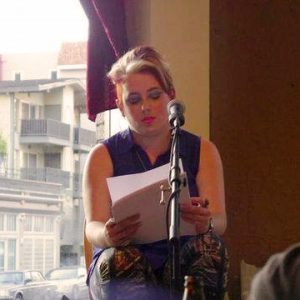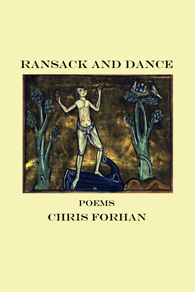First-year MFA poet Claire McGuinness will be giving a reading this Thursday, September 19 at her alma mater, Earlham College, as part of The Borderlands Project. Personally curated by Indiana poet laureate Karen Kovacik, The Borderlands Project will bring together Hoosiers and poets from states sharing Indiana’s north, east, south and west borders to “share poems about immigration, migration, borders or home.”
The eastern reading will feature Hoosiers and Ohioans. Claire will be reading alongside a long list of great writers, including David Baker, Don Bogen, Michael Brockley, Jayel Kato, Jim Cummins, Mary Fell, Shari Wagner, and Karen Kovacik herself.
As many of us know, between graduation and Dialogue readings, giving a public reading among friends is nerve-wracking enough. For many writers and poets, the craft is a private, solitary activity. Now take that formerly private poem or piece of prose, place yourself in an unfamiliar crowd in the middle of a set list that includes the Indiana poet laureate, and tell me your palms aren’t already getting a little sweaty.
Speaking of poems, Claire was nice enough to furnish the poem she will be reading at the event, called “Indiana, at Night.”
I got lost.
Nothing but damn cornfields
outside this city,
and then, still lost,
I get stuck behind
a colossal John Deere
and my last slip
of patience
flits out the open window.
Then I see the hay bales
casting plump shadows
and I remember what it means
to be from here,
to tease the tourist,
yeah, you always say,
it just grows that way.
If you see Claire between today and Thursday, be sure to wish her well, and if you are oh-so-very inclined to show your support, the eastern reading will be held at Earlham College’s Meetinghouse on Thursday, September 19, at 7. No pressure.


